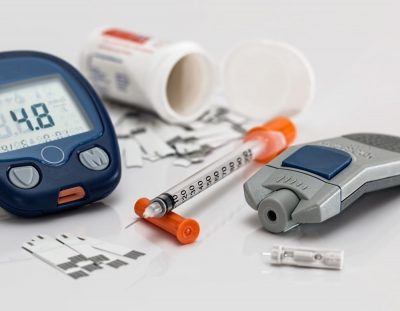June is Men’s Health Month and we celebrate it across the country with screenings, health fairs, and other health-related activities. The purpose of Men’s Health Month is to increase awareness about how to prevent health problems and to encourage early detection and treatment of disease among men and boys.
Taking care of your body is important and one of the biggest factors contributing to long term wellness is your weight. Being in tune with your body is the best way to realize when you might be experiencing weight gain and how it could be affecting your wellbeing down the road. For women, it is not unusual for their weight to fluctuate, but for men, it is not as common. While some people work on losing weight for other health reasons, weight gain can occur for no clear reason, and it can be frustrating to not know what is causing it.
At South Miami Spine & Joint, we believe in a comprehensive approach to your health and well-being and we encourage our patients to consider all the potential causes of their discomfort. It is quite possible that your diet and daily routine are factors that need attention and we are here to discuss those matters and support your efforts to make a change. During your consultation, we encourage you to talk to us about these issues and we can discuss some options to help get you on the right track. If you are ready to take the first step, click here to book a free consultation with us. We have also listed out some common explanations why men might experience unexpected weight gain as well as some steps you can take to reverse the symptoms.

Your Metabolism has Slowed Down
It is very likely that your metabolism will slow down when you hit middle age. Because of this, you are burning less calories per day at the same level of activity, versus when you were younger. If these habits are kept without any change you could end up gaining several pounds per year. As you get older, your muscle mass is also decreasing and it has a direct effect on your metabolic rate, meaning your metabolism will slow down even more.
Your Salt Intake is Too High
Sodium causes your body to retain water and that water has weight and volume. If you eat a lot of salty food for multiple days in a row, you may end up gaining weight rapidly. Restaurant food, especially fast food, is loaded with sodium. If you spend time away from home and fill your days with takeout and restaurant meals, then it could account for quick increases in your weight.
Poor Eating Habits
This one may seem obvious but if you are eating more calories than you used to, that change could lead to five to ten-pound increase in your weight over a period of one or more months. Alcohol is also something that needs to be considered. It has calories just like food does and can add excess calories to your weekly intake. Sometimes the increase in caloric intake can add up without you noticing it. Something as small as 500 calories per week adds up over time.
You are Getting Less Exercise
Even something like small changes to your physical activity can have a quick impact on your weight. Muscle mass tends to burn more calories and keep your metabolism elevated. If you deviate from your regular routine or vary it in ways that cause you to lose muscle mass, then the changes it produces to your metabolism can also cause you to gain weight.

You Have Insulin Resistance
The Western Diet is filled with sugars, fats, additives and other artificial ingredients in processed foods that can cause your body to experience insulin resistance, which can put you at risk for heart disease and diabetes.
If you notice that you’ve been eating out or ordering in a lot recently, you might be changing your cellular response in a way that could be dangerous in the future.
You Have an Endocrine Disorder
According to the National Institute of Diabetes and Digestive and Kidney Diseases, approximately one in five adults has an underactive thyroid—also known as hypothyroidism. While this condition is much more common in women, plenty of men experience hypothyroidism, which can cause sudden and significant weight gain. While less common, some other hormone disorders—namely, Cushing’s Syndrome—can also cause weight gain. If you have one of these endocrine disorders, it is likely that weight gain won’t be your only symptom. Fatigue, weakness, headaches, problems thinking, and depression or irritability are all signs of these hormone disorders. You can find more information about Cushing’s Syndrome by visiting the Mayo Clinic.


